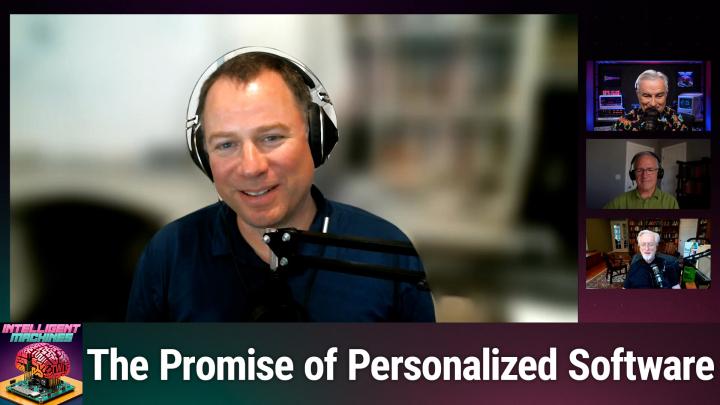The Future of Apps: A Deep Dive with Mike Masnick on Intelligent Machines
AI-created, human-edited.
The latest episode of Intelligent Machines delivered a fascinating conversation about the democratization of software development through AI-powered "vibe coding." Guest Mike Masnick, founder and editor of Techdirt, joined hosts Leo Laporte, Jeff Jarvis, and Mike Elgan to share his remarkable journey creating a custom task management app despite having no recent coding experience.
Masnick's story begins with a familiar frustration: the endless search for the perfect task management app. After years of trying various solutions, he discovered that most tools required him to adapt his workflow to their design philosophy. This changed when he encountered AI-powered vibe coding platforms that could translate natural language descriptions into functional applications.
Starting with just a paragraph describing what he wanted, Masnick tested four different vibe coding platforms before settling on Lovable. Within days, he had created "Little Alex" - a personalized task management system that perfectly matches his workflow and continues to evolve based on his needs.
The hosts explored how vibe coding works in practice. Rather than writing traditional code, users describe what they want in plain language, and AI generates the application. Masnick's approach was refreshingly straightforward - no detailed specifications or requirements documents, just a brief description of his needs.
The results were impressive. For approximately $20-25 per month and about 30 minutes of effort every few days, Masnick built a fully functional web application complete with calendar integration, custom bookmarklets, and features specifically tailored to his workflow. The app is hosted on Lovable's infrastructure but uses his own domain.
Perhaps even more intriguing was Masnick's discussion of using AI as an editorial assistant rather than a content generator. Using Lex.page, he's developed an elaborate system where AI acts as a harsh but honest editor, critiquing his work after he's written complete articles.
His approach includes custom scorecards that rate articles on various characteristics, fact-checking prompts, and even what he calls a "Van Halen M&M clause" - a built-in check to ensure the AI remains critical rather than overly complimentary. The result? His writing has actually slowed down because he spends more time refining each piece based on AI feedback, but the quality has improved significantly.
Mike Elgan raised thought-provoking questions about whether we're heading toward a future where natural language interfaces replace traditional apps. The panel discussed how vibe coding might evolve, with AI agents potentially handling the coding process entirely based on user requests.
Masnick offered a nuanced perspective, suggesting that while vibe coding works well for certain types of applications, it may not suit everything. Security concerns, social features, and complex data management still present challenges. However, he sees potential in combining vibe coding with decentralized protocols to create new possibilities.
The conversation didn't shy away from discussing the limitations of current vibe coding technology. Masnick shared his ongoing struggle to create a native Android app for his task manager, highlighting how AI can sometimes get stuck in loops, producing almost-but-not-quite-working solutions.
The panel discussed various strategies for overcoming these obstacles, including asking the AI to think through multiple potential solutions before implementing them. This iterative process reveals both the current capabilities and limitations of AI-assisted development.
The discussion expanded to cover Masnick's role on Bluesky's board, where he emphasized the platform's thoughtful approach to implementing features like private content on a public protocol. The conversation touched on recent conflicting court decisions about AI training on copyrighted material, demonstrating the complex intersection of technology, law, and creativity.
In a delightful revelation, Mike Elgan pointed out that Masnick coined the term "Streisand effect," adding another dimension to his contributions to internet culture and discourse.
This summary only scratches the surface of this rich conversation. To hear the complete discussion, including deeper dives into the technical aspects of vibe coding, more details about AI-assisted writing workflows, and insights into the future of decentralized social platforms, listen to the full episode of Intelligent Machines, available on all major podcast platforms.
